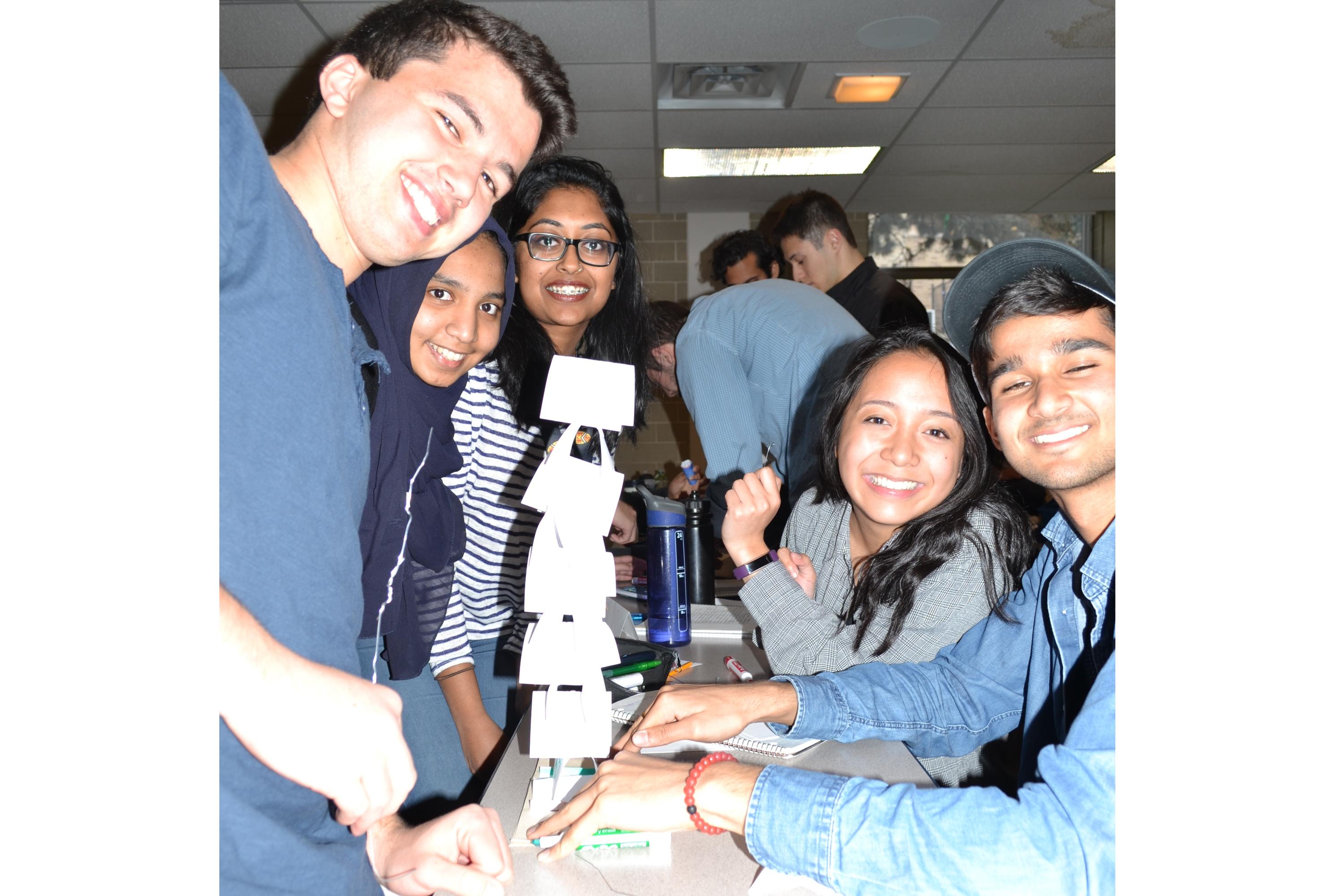Organisations are ubiquitous and fundamental to the functioning of modern societies. Management engineering students gain a deep understanding of organisations through two core courses, MSCI 211 (Organizational Behaviour) and MSCI 311 (Organizational Design and Technology), which they take in their 2A and 3A terms respectively.
In these courses, students learn about factors - both internal and external - that affect organizational effectiveness (for example, problem-solving and decision making) at the individual, group, and organizational levels. Combined with a number of electives, these courses provide students with knowledge and skills in the "people, organisations, and technology" stream of the program.
MSCI 211 - Organizational Behaviour
MSCI 311 - Organizational Design and Technology
MSCI 211 - Organizational Behaviour
In MSCI 211, you will learn about how individual behaviour in organisations is shaped by interpersonal processes and organizational characteristics, such as organizational culture and structure. Throughout the course an emphasis is placed on how you, as an organizational member or manager, might experience, interpret, and manage people, team, and processes in organisations. The ultimate goal of the course is to help you develop interpersonal and analytical skills that will help you to succeed in your future career in business and beyond.
The course has three topic areas:
- Understanding Individuals in the Workplace. To function in today’s changing workplace, you need to have a deep understanding of individual differences, which can greatly help you work effectively with others. How are individuals motivated? What power do people have over others? Why is there politics? You will develop such an understanding and practice how to work in a team during this course.
- Communicating Decisions. One important aspect of working with others is knowing how to communicate effectively, how to give feedback, how to make individual and group decisions, and how to handle conflict. It is also useful to know how to negotiate effectively in order to reach win-win situations. During this part of term, and in the process of working on your team project, you will learn and practice how to deal with conflict, experience many opportunities for negotiation and communicate feedback to others.
- Designing and Changing Organisations. Organisations are not fixed entities carved in stone. Rather, effective organisations adjust their design to accommodate the goals of the organisation. You will learn about organizational structure, job design, organizational culture and change, and how they affect individual behaviour and performance during this part of the term.
The course takes various formats, including lectures, case discussion, and experiential exercises. Students also have an opportunity to work on a project with a team, in which they study a real organisation, analyze the problems it is facing and propose solutions using the knowledge they have learned in the course.

(From left to right) Management Engineering students Yusuf Khaled, Sana Irfan, Sathana Srikanthan, Samantha Villaluz, and Aditya Kalia show off the paper tower they built in one of the class activities in MSCI 211. The exercise demonstrates to students how different team compositions and dynamics can lead to different team outcomes.
MSCI 311 - Organizational Design and Technology
MSCI 311 examines theories, concepts, and research aimed at understanding the structural design and functioning of human organisations.
Topics include organizational design fundamentals, communication, organizational environments, technology in organizations, organizational goals and effectiveness, and decision making.
The course objectives are for students to develop theoretical and practical approaches for:
- understanding the behavioural properties of organizations as social systems
- improving the design and behaviour of organisations
Projects in MSCI 311
As is also the case in MSCI 211, in MSCI 311 students apply what they learn in the course by completing a course project in groups. Through these projects, students typically analyze the processes of an organisation they are familiar with (e.g. through co-op) and recommend process changes to improve overall organizational effectiveness.
For example, management engineering students Laura Arrizza, Caroline Davey, Sam Villaluz, and Sheila Dumlao analyzed the research and development teams of a large software company based in Toronto, Ontario. By interviewing employees in several roles, they discovered that the company's use of JIRA - a management system that is widely used in the software industry - was not well-aligned with the existing hierarchical structures in the teams. The mismatch was negatively affecting the organization's effectiveness. The students proposed concrete changes to the ticketing system in JIRA to improve the process.
Electives in this topic
Interested students can gain a deeper and broader understanding of concepts in the "people, organisations, and technology" stream of the program through a number of electives:
- MSCI 411 - Leadership and influence
- MSCI 421 - Strategic Management of Technology
- MSCI 422 - Economic Impact of Technological Change and Entrepreneurship
- MSCI 423 - Managing New Product and Process Innovation
- MSCI 442 - Impact of Information Systems on Organizations and Society
- MSCI 454 - Technical Entrepreneurship